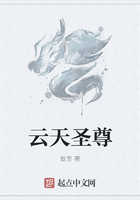Mrs. Pontellier was not a woman given to confidences, a characteristic hitherto contrary to her nature. Even as a child she had lived her own small life all within herself. At a very early period she had apprehended instinctively the dual life — that outward existence which conforms, the inward life which questions.
That summer at Grand Isle she began to loosen a little the mantle of reserve that had always enveloped her. There may have been — there must have been — influences, both subtle and apparent, working in their several ways to induce her to do this; but the most obvious was the influence of Adele Ratignolle. The excessive physical charm of the Creole had first attracted her, for Edna had a sensuous susceptibility to beauty. Then the candor of the woman's whole existence, which every one might read, and which formed so striking a contrast to her own habitual reserve — this might have furnished a link. Who can tell what metals the gods use in forging the subtle bond which we call sympathy, which we might as well call love.
The two women went away one morning to the beach together, arm in arm, under the huge white sunshade. Edna had prevailed upon Madame Ratignolle to leave the children behind, though she could not induce her to relinquish a diminutive roll of needlework, which Adele begged to be allowed to slip into the depths of her pocket. In some unaccountable way they had escaped from Robert.
The walk to the beach was no inconsiderable one, consisting as it did of a long, sandy path, upon which a sporadic and tangled growth that bordered it on either side made frequent and unexpected inroads. There were acres of yellow camomile reaching out on either hand. Further away still, vegetable gardens abounded, with frequent small plantations of orange or lemon trees intervening. The dark green clusters glistened from afar in the sun.
The women were both of goodly height, Madame Ratignolle possessing the more feminine and matronly figure. The charm of Edna Pontellier's physique stole insensibly upon you. The lines of her body were long, clean and symmetrical; it was a body which occasionally fell into splendid poses; there was no suggestion of the trim, stereotyped fashion-plate about it. A casual and indiscriminating observer, in passing, might not cast a second glance upon the figure. But with more feeling and discernment he would have recognized the noble beauty of its modeling, and the graceful severity of poise and movement, which made Edna Pontellier different from the crowd.
She wore a cool muslin that morning — white, with a waving vertical line of brown running through it; also a white linen collar and the big straw hat which she had taken from the peg outside the door. The hat rested any way on her yellow-brown hair, that waved a little, was heavy, and clung close to her head.
Madame Ratignolle, more careful of her complexion, had twined a gauze veil about her head. She wore dogskin gloves, with gauntlets that protected her wrists. She was dressed in pure white, with a fluffiness of ruffles that became her. The draperies and fluttering things which she wore suited her rich, luxuriant beauty as a greater severity of line could not have done.
There were a number of bath-houses along the beach, of rough but solid construction, built with small, protecting galleries facing the water. Each house consisted of two compartments, and each family at Lebrun's possessed a compartment for itself, fitted out with all the essential paraphernalia of the bath and whatever other conveniences the owners might desire. The two women had no intention of bathing; they had just strolled down to the beach for a walk and to be alone and near the water. The Pontellier and Ratignolle compartments adjoined one another under the same roof.
Mrs. Pontellier had brought down her key through force of habit. Unlocking the door of her bath-room she went inside, and soon emerged, bringing a rug, which she spread upon the floor of the gallery, and two huge hair pillows covered with crash, which she placed against the front of the building.
The two seated themselves there in the shade of the porch, side by side, with their backs against the pillows and their feet extended. Madame Ratignolle removed her veil, wiped her face with a rather delicate handkerchief, and fanned herself with the fan which she always carried suspended somewhere about her person by a long, narrow ribbon. Edna removed her collar and opened her dress at the throat. She took the fan from Madame Ratignolle and began to fan both herself and her companion. It was very warm, and for a while they did nothing but exchange remarks about the heat, the sun, the glare. But there was a breeze blowing, a choppy, stiff wind that whipped the water into froth. It fluttered the skirts of the two women and kept them for a while engaged in adjusting, readjusting, tucking in, securing hair-pins and hat-pins. A few persons were sporting some distance away in the water. The beach was very still of human sound at that hour. The lady in black was reading her morning devotions on the porch of a neighboring bathhouse. Two young lovers were exchanging their hearts' yearnings beneath the children's tent, which they had found unoccupied.
Edna Pontellier, casting her eyes about, had finally kept them at rest upon the sea. The day was clear and carried the gaze out as far as the blue sky went; there were a few white clouds suspended idly over the horizon. A lateen sail was visible in the direction of Cat Island, and others to the south seemed almost motionless in the far distance.
"Of whom — of what are you thinking?" asked Adele of her companion, whose countenance she had been watching with a little amused attention, arrested by the absorbed expression which seemed to have seized and fixed every feature into a statuesque repose.
"Nothing," returned Mrs. Pontellier, with a start, adding at once: "How stupid! But it seems to me it is the reply we make instinctively to such a question. Let me see," she went on, throwing back her head and narrowing her fine eyes till they shone like two vivid points of light. "Let me see. I was really not conscious of thinking of anything; but perhaps I can retrace my thoughts."
"Oh! never mind!" laughed Madame Ratignolle. "I am not quite so exacting. I will let you off this time. It is really too hot to think, especially to think about thinking."
"But for the fun of it," persisted Edna. "First of all, the sight of the water stretching so far away, those motionless sails against the blue sky, made a delicious picture that I just wanted to sit and look at. The hot wind beating in my face made me think — without any connection that I can trace of a summer day in Kentucky, of a meadow that seemed as big as the ocean to the very little girl walking through the grass, which was higher than her waist. She threw out her arms as if swimming when she walked, beating the tall grass as one strikes out in the water. Oh, I see the connection now!"
"Where were you going that day in Kentucky, walking through the grass?"
"I don't remember now. I was just walking diagonally across a big field. My sun-bonnet obstructed the view. I could see only the stretch of green before me, and I felt as if I must walk on forever, without coming to the end of it. I don't remember whether I was frightened or pleased. I must have been entertained.
"Likely as not it was Sunday," she laughed; "and I was running away from prayers, from the Presbyterian service, read in a spirit of gloom by my father that chills me yet to think of."
"And have you been running away from prayers ever since, ma chere?" asked Madame Ratignolle, amused.
"No! oh, no!" Edna hastened to say. "I was a little unthinking child in those days, just following a misleading impulse without question. On the contrary, during one period of my life religion took a firm hold upon me; after I was twelve and until — until — why, I suppose until now, though I never thought much about it — just driven along by habit. But do you know," she broke off, turning her quick eyes upon Madame Ratignolle and leaning forward a little so as to bring her face quite close to that of her companion, "sometimes I feel this summer as if I were walking through the green meadow again; idly, aimlessly, unthinking and unguided."
Madame Ratignolle laid her hand over that of Mrs. Pontellier, which was near her. Seeing that the hand was not withdrawn, she clasped it firmly and warmly. She even stroked it a little, fondly, with the other hand, murmuring in an undertone, "Pauvre cherie."
The action was at first a little confusing to Edna, but she soon lent herself readily to the Creole's gentle caress. She was not accustomed to an outward and spoken expression of affection, either in herself or in others. She and her younger sister, Janet, had quarreled a good deal through force of unfortunate habit. Her older sister, Margaret, was matronly and dignified, probably from having assumed matronly and housewifely responsibilities too early in life, their mother having died when they were quite young, Margaret was not effusive; she was practical. Edna had had an occasional girl friend, but whether accidentally or not, they seemed to have been all of one type — the self-contained. She never realized that the reserve of her own character had much, perhaps everything, to do with this. Her most intimate friend at school had been one of rather exceptional intellectual gifts, who wrote fine-sounding essays, which Edna admired and strove to imitate; and with her she talked and glowed over the English classics, and sometimes held religious and political controversies.
Edna often wondered at one propensity which sometimes had inwardly disturbed her without causing any outward show or manifestation on her part. At a very early age — perhaps it was when she traversed the ocean of waving grass — she remembered that she had been passionately enamored of a dignified and sad-eyed cavalry officer who visited her father in Kentucky. She could not leave his presence when he was there, nor remove her eyes from his face, which was something like Napoleon's, with a lock of black hair failing across the forehead. But the cavalry officer melted imperceptibly out of her existence.
At another time her affections were deeply engaged by a young gentleman who visited a lady on a neighboring plantation. It was after they went to Mississippi to live. The young man was engaged to be married to the young lady, and they sometimes called upon Margaret, driving over of afternoons in a buggy. Edna was a little miss, just merging into her teens; and the realization that she herself was nothing, nothing, nothing to the engaged young man was a bitter affliction to her. But he, too, went the way of dreams.
She was a grown young woman when she was overtaken by what she supposed to be the climax of her fate. It was when the face and figure of a great tragedian began to haunt her imagination and stir her senses. The persistence of the infatuation lent it an aspect of genuineness. The hopelessness of it colored it with the lofty tones of a great passion.
The picture of the tragedian stood enframed upon her desk. Any one may possess the portrait of a tragedian without exciting suspicion or comment. (This was a sinister reflection which she cherished.) In the presence of others she expressed admiration for his exalted gifts, as she handed the photograph around and dwelt upon the fidelity of the likeness. When alone she sometimes picked it up and kissed the cold glass passionately.
Her marriage to Leonce Pontellier was purely an accident, in this respect resembling many other marriages which masquerade as the decrees of Fate. It was in the midst of her secret great passion that she met him. He fell in love, as men are in the habit of doing, and pressed his suit with an earnestness and an ardor which left nothing to be desired. He pleased her; his absolute devotion flattered her. She fancied there was a sympathy of thought and taste between them, in which fancy she was mistaken. Add to this the violent opposition of her father and her sister Margaret to her marriage with a Catholic, and we need seek no further for the motives which led her to accept Monsieur Pontellier for her husband.
The acme of bliss, which would have been a marriage with the tragedian, was not for her in this world. As the devoted wife of a man who worshiped her, she felt she would take her place with a certain dignity in the world of reality, closing the portals forever behind her upon the realm of romance and dreams.
But it was not long before the tragedian had gone to join the cavalry officer and the engaged young man and a few others; and Edna found herself face to face with the realities. She grew fond of her husband, realizing with some unaccountable satisfaction that no trace of passion or excessive and fictitious warmth colored her affection, thereby threatening its dissolution.
She was fond of her children in an uneven, impulsive way. She would sometimes gather them passionately to her heart; she would sometimes forget them. The year before they had spent part of the summer with their grandmother Pontellier in Iberville. Feeling secure regarding their happiness and welfare, she did not miss them except with an occasional intense longing. Their absence was a sort of relief, though she did not admit this, even to herself. It seemed to free her of a responsibility which she had blindly assumed and for which Fate had not fitted her.
Edna did not reveal so much as all this to Madame Ratignolle that summer day when they sat with faces turned to the sea. But a good part of it escaped her. She had put her head down on Madame Ratignolle's shoulder. She was flushed and felt intoxicated with the sound of her own voice and the unaccustomed taste of candor. It muddled her like wine, or like a first breath of freedom.
There was the sound of approaching voices. It was Robert, surrounded by a troop of children, searching for them. The two little Pontelliers were with him, and he carried Madame Ratignolle's little girl in his arms. There were other children beside, and two nurse-maids followed, looking disagreeable and resigned.
The women at once rose and began to shake out their draperies and relax their muscles. Mrs. Pontellier threw the cushions and rug into the bath-house. The children all scampered off to the awning, and they stood there in a line, gazing upon the intruding lovers, still exchanging their vows and sighs. The lovers got up, with only a silent protest, and walked slowly away somewhere else.
The children possessed themselves of the tent, and Mrs. Pontellier went over to join them.
Madame Ratignolle begged Robert to accompany her to the house; she complained of cramp in her limbs and stiffness of the joints. She leaned draggingly upon his arm as they walked.















